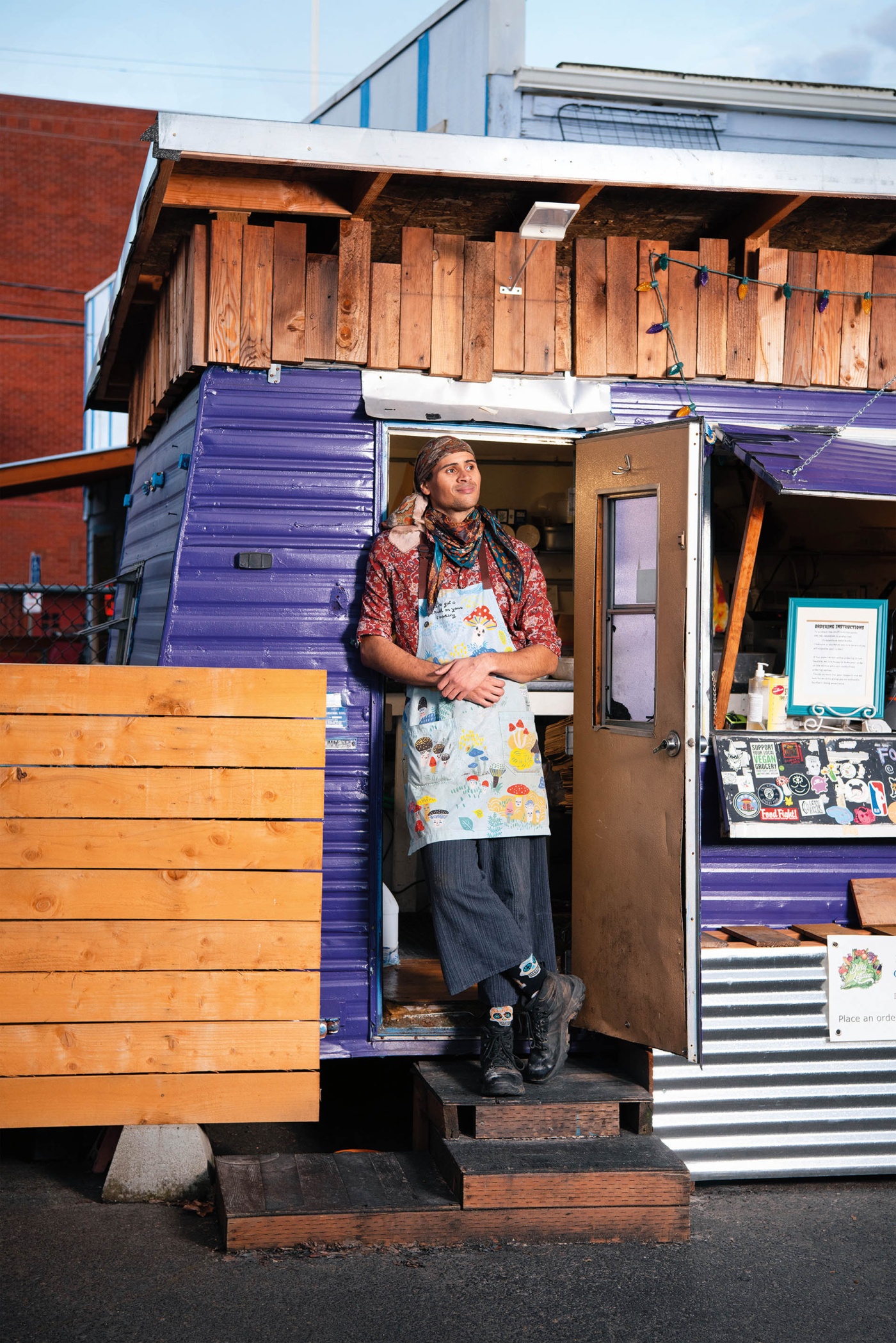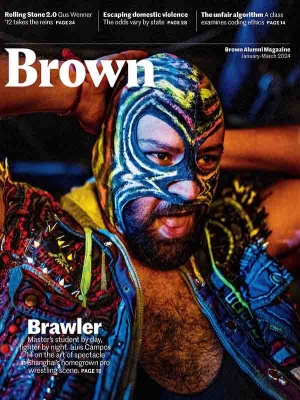Vegan Triumph
A Mississippi native takes meatless Southern cooking to the West Coast
When Alkebulan Moroski ’17 decided to move his vegan Cajun-Creole cooking restaurant, Dirty Lettuce, from his hometown of Jackson, Mississippi, to Portland, Oregon, the time felt right. A Mississippi bill had just outlawed the labeling of plant-based food as meat, and while that didn’t directly affect the menu at Dirty Lettuce, Oregon just seemed a friendlier place for vegan cuisine.

Unfortunately, it was January 2020 when he set up shop in Portland. “Really great timing,” he jokes. But he was able to fire up his food truck in an all-vegan food court, which allowed Moroski a soft landing—locals with an appetite for inventive plant-based cuisine quickly lined up for his meat-free takes on traditional soul food like sauce-slathered ribs, crispy fried chicken, and rich, spicy gumbo, along with extras like okra étouffée, Cajun-spiced hushpuppies, mashed potatoes, and fried pickles with ranch dressing.
“We were in a converted camping trailer,” recalls Moroski. “It was four inches shorter than me, so I was pretty much always crouched down while cooking.” Plates piled high with as many savory sides as possible, Dirty Lettuce was quickly in (and on) the mouths of savvy vegans throughout Portland. In early 2021, Moroski went brick and mortar, opening a permanent Dirty Lettuce restaurant—which Eater Portland quickly called a “vegan sensation.”
Moroski has always been a self-starter. He was homeschooled for his entire K-12 education, then enrolled at Brown—from which, Moroski notes, he didn’t quite graduate, having left partway through his senior year to start working in the food world. But his environmental studies coursework did help his work with alternative ingredients, especially when looking at the way things like protein and fat naturally behave while cooking, as well as in shaping his desire to offer a more sustainable type of cuisine. The world of vegan cooking is still blossoming, he says: “A lot of it is still just going out and looking at different plants and at their properties and figuring out what you can do with each item.”
Moroski grew up in a restaurant-owning family in Jackson and was mainly vegetarian in his early life—but his versions of classic meat-based dishes are so satisfying, it may surprise some that he’s never tried most of the “real” things. To get each dish just so, “I used meat-eaters back in Mississippi, who didn’t really want to eat vegan food, as my guinea pigs,” he says, “which ensures that the Cajun texture, spices, and aromas hit just right.” What’s next? Another food truck (hopefully one with a higher ceiling) so that he can move around to festivals and other events, as well as enter the catering scene in Portland. Creativity in the kitchen is always top of mind: “I’d love to have another cart to use as my experimental kitchen—I could even test out a menu from a totally different cuisine.”




